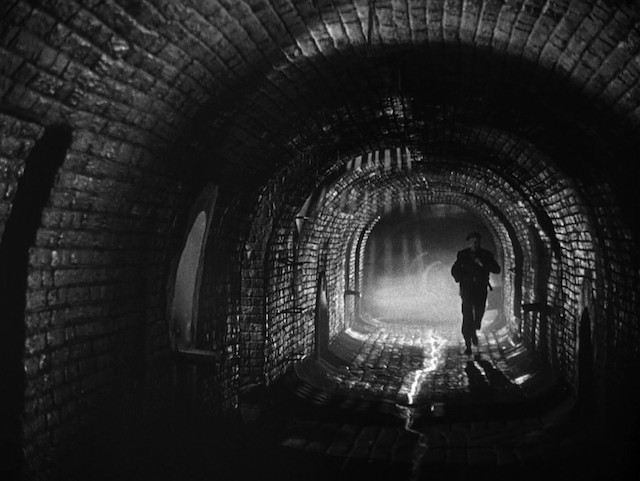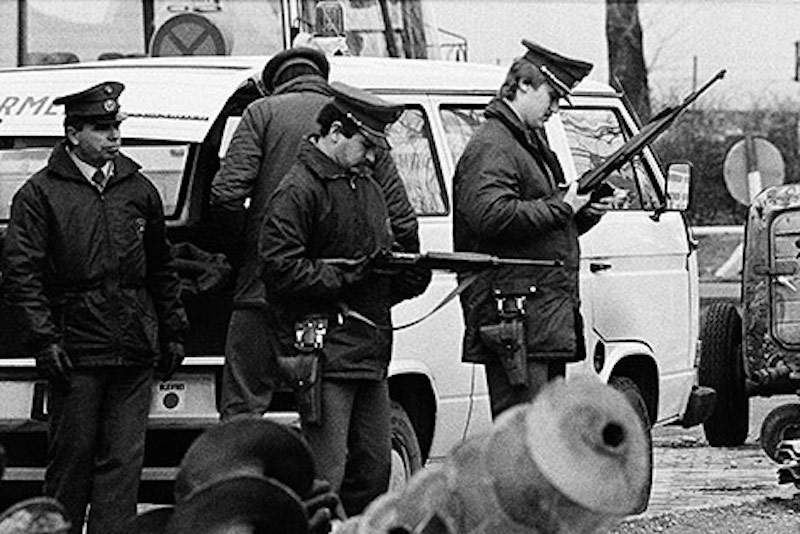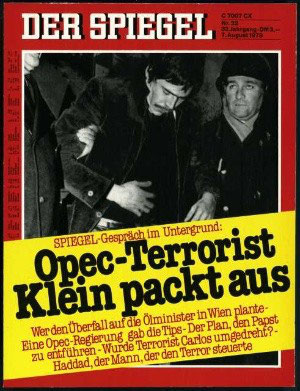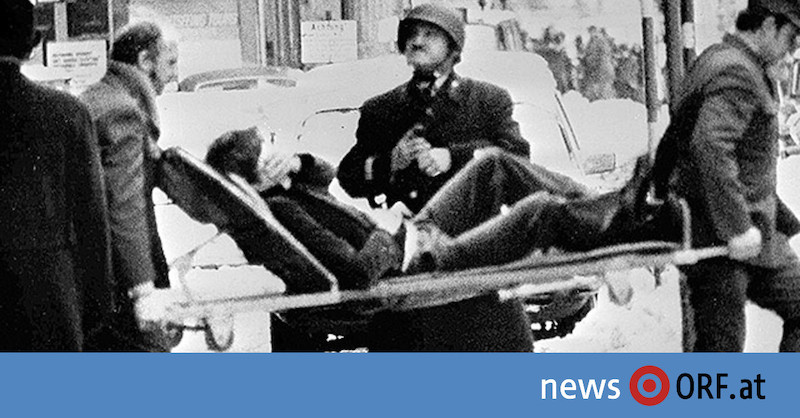Get the weekly SPARTANAT newsletter.
Your bonus: the free E-Book from SPARTANAT.

One arranges to meet in the cigar room of an international grand hotel, in the betting café at the main train station, or simply on a park bench in the Prater. Some conversation partners arrive in a black limousine, others take the tram. If one wants to contact employees of foreign intelligence services in Vienna, in addition to a certain flexibility in choosing meeting points, one needs a good amount of patience. In any case, one is in the right place in Vienna. The city was and is a stronghold of spies, with up to 10,000 experts currently living in the city, according to experts.
Why is Vienna so well-suited for activities in secret? Why does Austria still not have a domestic intelligence service? Where does the recurrent myth of Vienna as a supposedly perfect hideaway come from - not only for intelligence services, but also for terror-related organizations? The cover image is from the post-war spy thriller "The Third Man" - which partially takes place in the Vienna sewers.

Some reasons are mentioned in the Constitutional Protection Report of the Federal Office for the Protection of the Constitution and Counterterrorism (BVT). It explains, for example, that Vienna's geographical location still plays a decisive role. This has not changed decades after the fall of the Iron Curtain.
But it is not only because Vienna is located in the center of Europe and hosts many international organizations that spies settle here.
A transfer to Vienna, according to the former chief of the BVT, Gert-René Polli, is still considered a reward for a meritorious intelligence career. Among other things, because in Austria one can only get into serious trouble if intelligence activities are directed against the interests of the Republic.
An effective counterespionage, according to insiders, cannot take place in practice because of the lack of political will to establish a civilian domestic intelligence service. The BVT, which is often seen as a non-military intelligence service, is integrated into the police investigative apparatus. The employees are police officers. Therefore, the BVT cannot be an intelligence service in the conventional sense, comparable to the German Federal Office for the Protection of the Constitution or the British MI5. Only recently has there been a demand in Austria to establish a civilian domestic intelligence service.
The Middle East
Change of scene. King David Lounge at Ben Gurion Airport, 20 minutes' drive from Tel Aviv. It is the end of July. Here sits, let's call him Paul, waiting for his flight to Milan. His employer is the Pentagon. The American lives and works in Italy. His office is somewhere between Verona and Florence. His areas of expertise include the Balkans. He has had two deployments in the Vietnam War with the Special Forces, also known as Green Berets. After his time in Vietnam, he joined the CIA and was initially sent to the CIS region. He does not reveal what he did there.
After that, he spent some time in Vienna in the late 1990s. He still remembers the Austrian coziness in dealing with foreign services. "After years somewhere between Moscow and Tashkent, life in Vienna was like paradise for my family and me. Vienna is still my favorite city," says the nearly 60-year-old man. He still raves about the cultural offerings. Only the grumpy people - and the SWR agents - would not be missed. "The Russians really had their people everywhere. In banks, several ministries, and in the police. It even surpassed Berlin."
The Middle East in Vienna
To understand how the myth of Austria as a resting place for terrorist organizations has developed, one must look back at the time of Bruno Kreisky. The 1970s and 1980s were strongly influenced by the anti-terrorism strategy of the former Chancellor. The Social Democrat was convinced that terrorist attacks on Austrian soil could be prevented if one talked to everyone, even "with the devil" if necessary. The credo was political restraint towards extremist groups. This applied to both left-wing extremists and the Palestinian spectrum, for example. Kreisky directly or indirectly conferred with both the former Libyan revolutionary leader Muammar al-Gaddafi and (the late) PLO leader Yasser Arafat.
In contrast, his German counterpart, Helmut Schmidt, pursued a policy of state harshness in the 1970s. His motto was: You do not negotiate with terrorists. However, the German head of government did not hold this position from the beginning, but rather as a result of experiences he had during the abduction of the West Berlin CDU chairman Peter Lorenz. At that time, the demands of the terrorists were met, prisoners were released, the perpetrators were given safe passage - and they were able to continue their terrorist activities undisturbed afterwards.
In the abduction of the employer president Hanns Martin Schleyer, Schmidt remained uncompromising due to his experiences. Schleyer was murdered.

Kreisky's political stance of negotiating directly with terrorist sponsors, however, could not prevent terrorist activities. This was shown by the activities of individual terrorist organizations in Austria. In 1973, Jewish emigrants from the Soviet Union who were en route to Israel were attacked by Palestinians ("Al-Saika" group) at the border station in Marchegg (Lower Austria). The hostage-taking ended non-lethally, but Kreisky closed the transit camp for immigrants from the Soviet Union - a demand of the terrorists. This brought international criticism to the Chancellor.

Three years later, Arab terrorists took about 60 people hostage at the OPEC headquarters in Vienna. Three people died. The terrorists led by the Venezuelan-born Ilich Ramírez Sánchez, also known as "Carlos," were able to fly to Algiers with about 30 hostages on board. Interior Minister Otto Rösch bid farewell to Carlos with a handshake.

In 1981, Palestinian terrorists struck in Austria. A member of the Abu Nidal Group murdered the Vienna SP city councilor and then president of the Austrian-Israeli Society, Heinz Nittel, in front of his house in Hietzing.
That same year, an attack was carried out on the synagogue in Vienna. Four years later, passengers were targeted in front of the El Al counter at Vienna-Schwechat Airport. The result: Four dead, almost 40 injured. In this case as well, discussions were held with the masterminds. Chief negotiator was Oswald Kessler, the then chief of the state police (Stapo).
Austria as a "recreational area"
Back to the year 2017. It is mid-September. In the lobby of a Viennese Ringstrasse hotel, we meet Jacob T. He has been involved in the world of intelligence services for 20 years, one of those shadowy figures. For many years, he was operationally active in the field for a small Mediterranean country. His area of expertise has remained technical reconnaissance to this day. The command operations were carried out by six-person teams. Together, they entered apartments and houses, broke into cars to install listening devices. This was followed by days, sometimes weeks, of observation. Target persons were Lebanese, Iranians, Syrians. Jacob T.'s frequent changes of location also took him to Switzerland and Austria.
When asked about the current security situation in Europe, he notes, "The situation is de facto unpredictable, a common assessment of the threat situation is practically impossible, because each EU country is cooking its own soup. So there is never a unified level of information." This refers to the national intelligence services, which are opposed to increased cooperation at the European level. "Different cultures, different legal powers exist within the services. They are part of the core of national sovereignty. No one gives out more information than is needed for their own work. Especially not the big states." The approximately 50-year-old criticizes the porosity of the EU's external borders: "It may be that progress has been made in securing the borders in recent times, but fundamentally it is still possible to enter the European Union incognito and disappear into the Schengen area. Border controls on the highway are placebos for the population if I don't do them on the country roads or at train stations."
They sleep undisturbed
He does not see the threat level for Austria on par with Belgium or the Netherlands; but with Sweden. However, not only Salafist-jihadist cells are dangerous, even Hezbollah would still cause excitement in the future, predicts the intelligence officer.
From his perspective, Austria continues to serve as a "recreational area" for a variety of terrorist networks and organizations, but not as a primary target. "Whether it is Kurdish PKK supporters, Muslim Brotherhood members, or agents of the Iranian regime - they still sleep undisturbed in Vienna."
TERRORISM on SPARTANAT:
Part 1:Criminals, Heroes, Freedom Fighters
Part 2: The History of Terror in Europe, Visualized
Part 3: What's New About the New Terror?
Part 4: The German Autumn 1977
Part 5: Little Lexicon of the Jihadist Culture
Part 6: For House and Wife into Jihad
More to come ...
This article was first published on October 6, 2017 on ADDENDUM. Copyright Text: ADDENDUM. Graphics: Addendum, Archive.
ADDENDUM Online: www.addendum.org
SPARTANAT is the online magazine for Military News, Tactical Life, Gear & Reviews.
Send us your news: [email protected]
Ad
similar
Get the weekly SPARTANAT newsletter.
Your bonus: the free E-Book from SPARTANAT.


